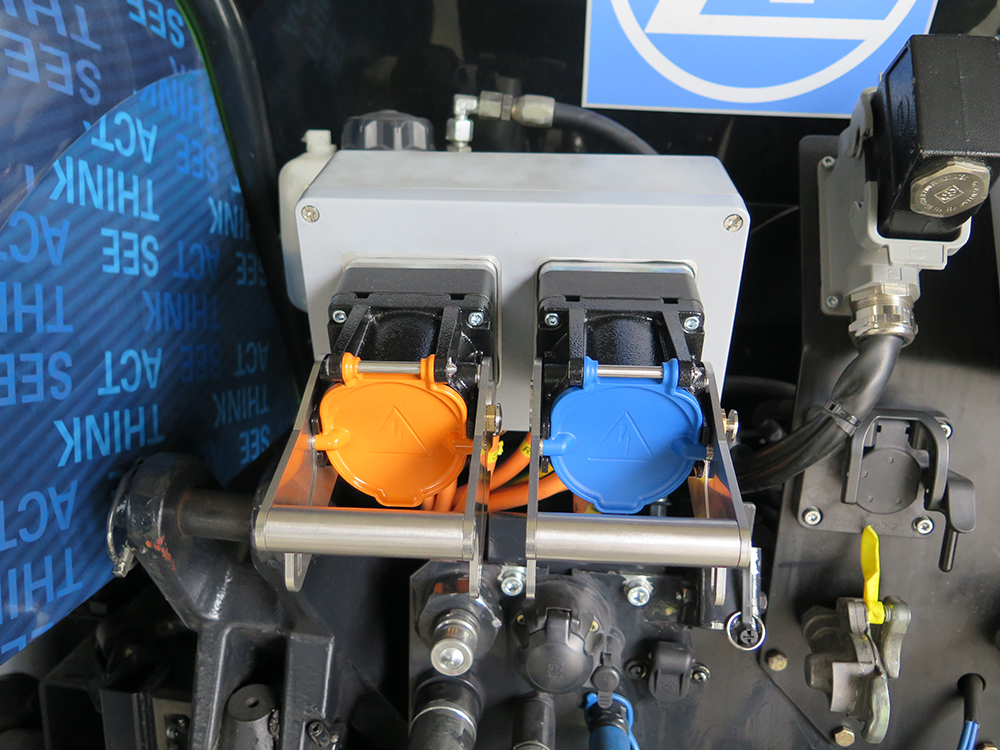How smart farming and electrification is key to sustainability
GROW, GROW, GROW
The term “Smart Farming” sounds like a buzzword. However, it is extremely important for meeting long-term world food demand and sustainability in the Agriculture industry. Smart Farming utilizes digital technologies and next generation concepts to achieve the best crop yield that is environmentally responsible. Artificial intelligence and big data tracking sunlight, temperature, humidity, and other environmental factors are used to optimize planting, spraying, irrigating, and other farming elements.
The United Nations 2019 Revision of World Population Prospects states the world’s population is expected to increase by 2 billion people in the next 30 years, from 7.7 billion to 9.7 billion in 2050. Credence Research forecasts the electric tractor market value of $2.9 billion USD in 2027 from $640.3 million USD in 2020.
“Smart farming includes increasing productivity, maximizing operational efficiency, and minimize labor costs.”
TRACTOR ELECTRIFICATION
Electric tractors, the workhorse of Smart Farming, is a transformative trend that includes the application of technology components including sensors, GPS, and machine vision systems to perform various agricultural tasks. Credence Research forecasts the electric tractor market value of $2.9 billion USD in 2027 from $640.3 million USD in 2020. It is expected to grow at a CAGR of over 24.1 % during the forecast period.
ENERGY EFFICIENCY
The National Rural Electric Cooperative Association (NRECA) published a report estimating electric tractor adoption could yield a 50 percent average reduction in energy use vs diesel fuel. The analysis noted additional savings can be amplified by the electrification of other farm vehicles unrelated to producing field crops including pickup trucks and hauling trucks, which also consume fossil fuels.
POWERING AUXILIARY EQUIPMENT
In non-electrified tractor models, engines use traditional mechanical and hydraulic power take off (PTO) for the attachments. Electric tractors provide a far more efficient means of transferring energy to intelligent ancillary devices that utilize electrical power for traction drives, electric servomotors, embedded computers, vision systems, and a wide range of sensors. The John Deere Exact Emerge™ row planting units are an example employing mechatronics, sensors and controls orchestrated by advanced automation and artificial intelligence (AI).
These electric units eliminate cumbersome hydraulics facilitating a more responsive, efficient, and reliable process. Featured at the 2021 Consumer Electronics Show, the highly automated 8RX Tractor and 60-foot, 24-row planter feature more than 300 sensors and 140 embedded controllers that process up to 15,000 measurements per second. These technologies allow the tractor to precisely plant over 700 corn seeds–or 2,800 soybean seeds at the optimal depth based on current soil conditions to improve crop yields.
SMART FARMING CONNECTORS
Smart Farming electrification requires a range of connectors for applications including high power, medium voltage, sensors, and data communications. These connections are plugged and unplugged frequently over the equipment’s lifecycle. Reliable and robust components play a crucial role in customer satisfaction as well as reducing maintenance cost over the equipment lifecycle. Poorly designed connectors that degrade over time in harsh environments increase the frequency of failure and correlates to additional expenses for the farmer. Quality designed connectors fail much less often and are typically easier to repair.
Connectors must be designed and manufactured to meet the harsh farming environment including wide temperature ranges, high vibration, washdown requirements, and demanding weather conditions. HARTING has broad expertise, know-how, and products for high power, medium voltage, sensors, and data communication applications for a broad range of industries including computing, railroad, industrial machines, electric vehicles, and electric generation.
Electrification deployed with connectors and cables efficiently distributes power to all elements.
DATA COMMUNICATIONS
Modern farming equipment incorporates data intensive features, including 3D technology, that provides a bird’s-eye view of the system. These technologies make autonomous driving and remote farming possible through a wide range of electronics built on reliable industrial & IoT digital communications. The vision of fully autonomous farming encompasses all facets of agriculture with the goal of almost going backward in time; down to the fundamental seed level to achieve the highest yields imaginable.
HARTING supports all forms of data communications that are the backbone of Smart Farming. HARTING is at the forefront of the most exciting new development, Single Pair Ethernet (SPE) 10BASE-T1: a two wire 10 Mbps Ethernet physical layer network technology under the IEEE 802.3cg specification. SPE leverages Internet Protocol (IP) communications common in the computing and Internet of Things (IoT) world to communicate data and information.
OEM RELATIONSHIP
Manufacturers achieve superior results in product design and implementation of electrified tractors and implements through working with a strong connector supplier. HARTING has 75 years of practical expertise when creating connectors that meet demanding requirements through proper materials, barrier layers, contact pressure, and structural mechanics in related industries including railroad, automotive, consumer electronics and computing. HARTING can meet any connectivity needs for the next generation Agriculture equipment. OEM assistance includes HARTING Customised Solutions (HCS) which helps design and manufacture tailor-made solutions and Corporate Technology Services (CTS) laboratory accredited to DIN EN ISO / IEC 17025: 2018 for tests on electromechanical components, fiber-optic and electronic transmission systems, geometries, and material properties, as well as for EMC tests for CE mark approval.
The future is smart farming, and HARTING connectors help power a greener, more sustainable world today and tomorrow.



